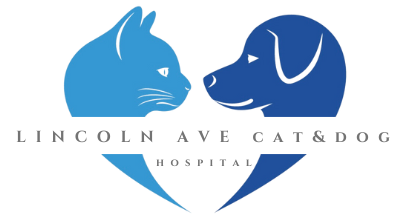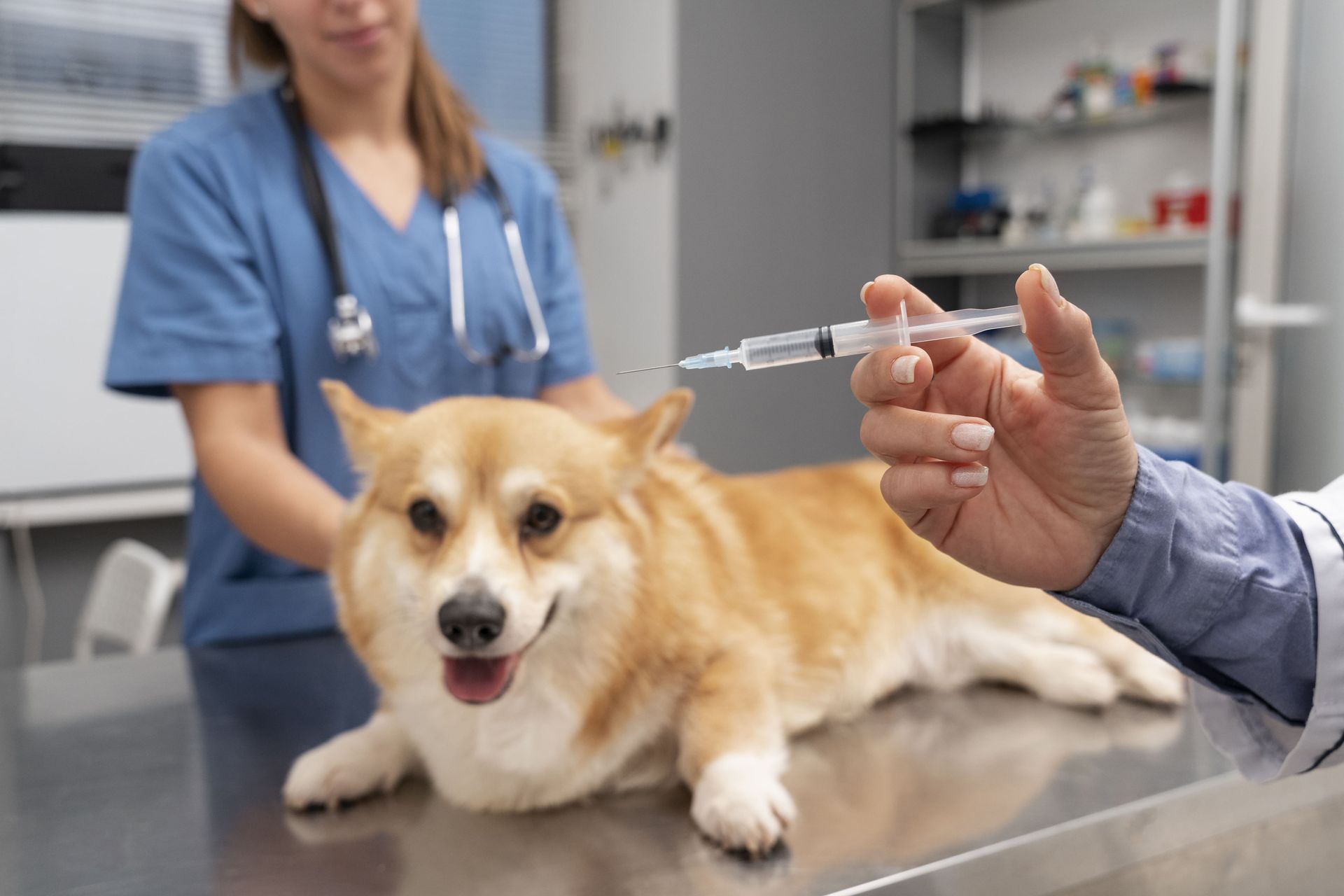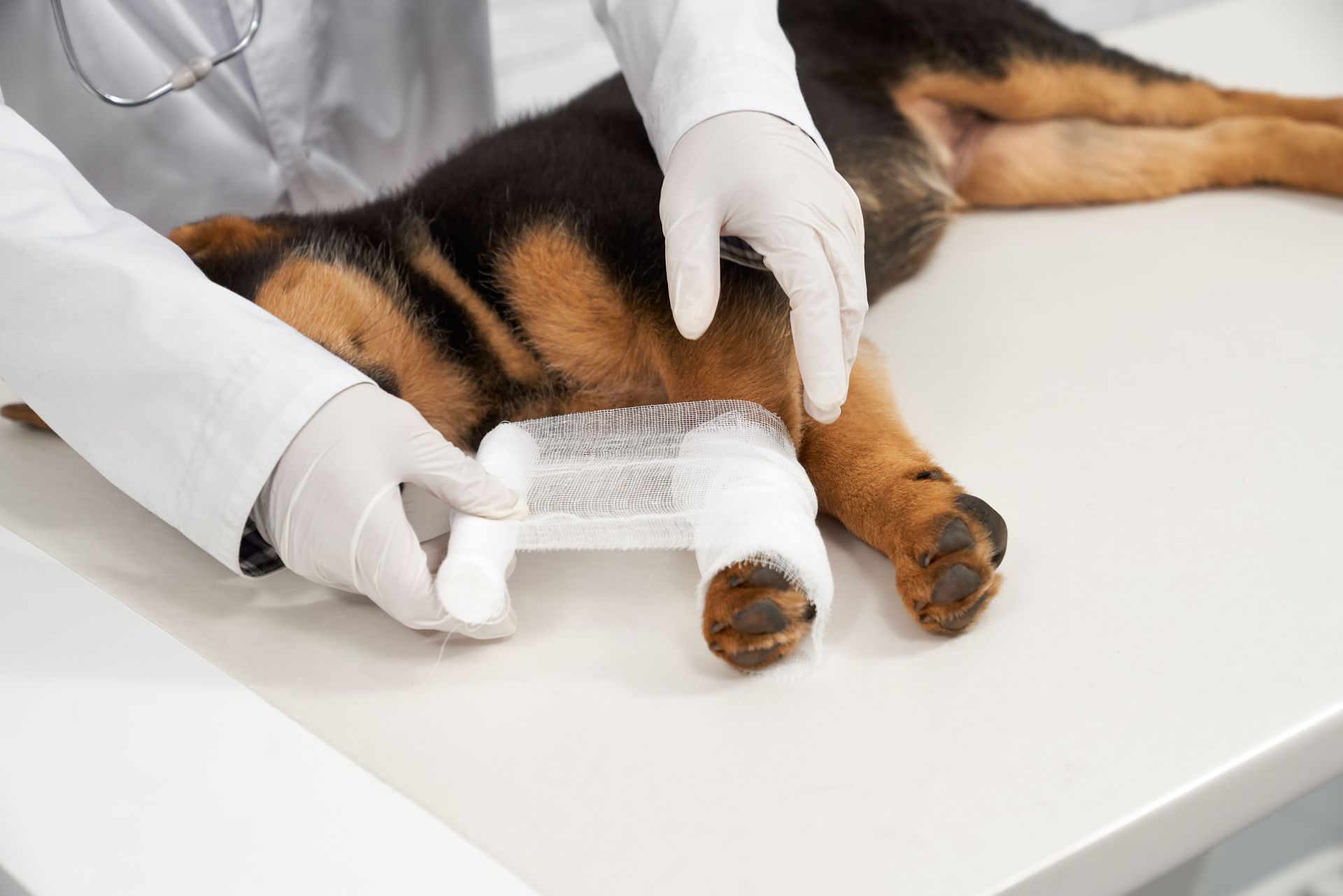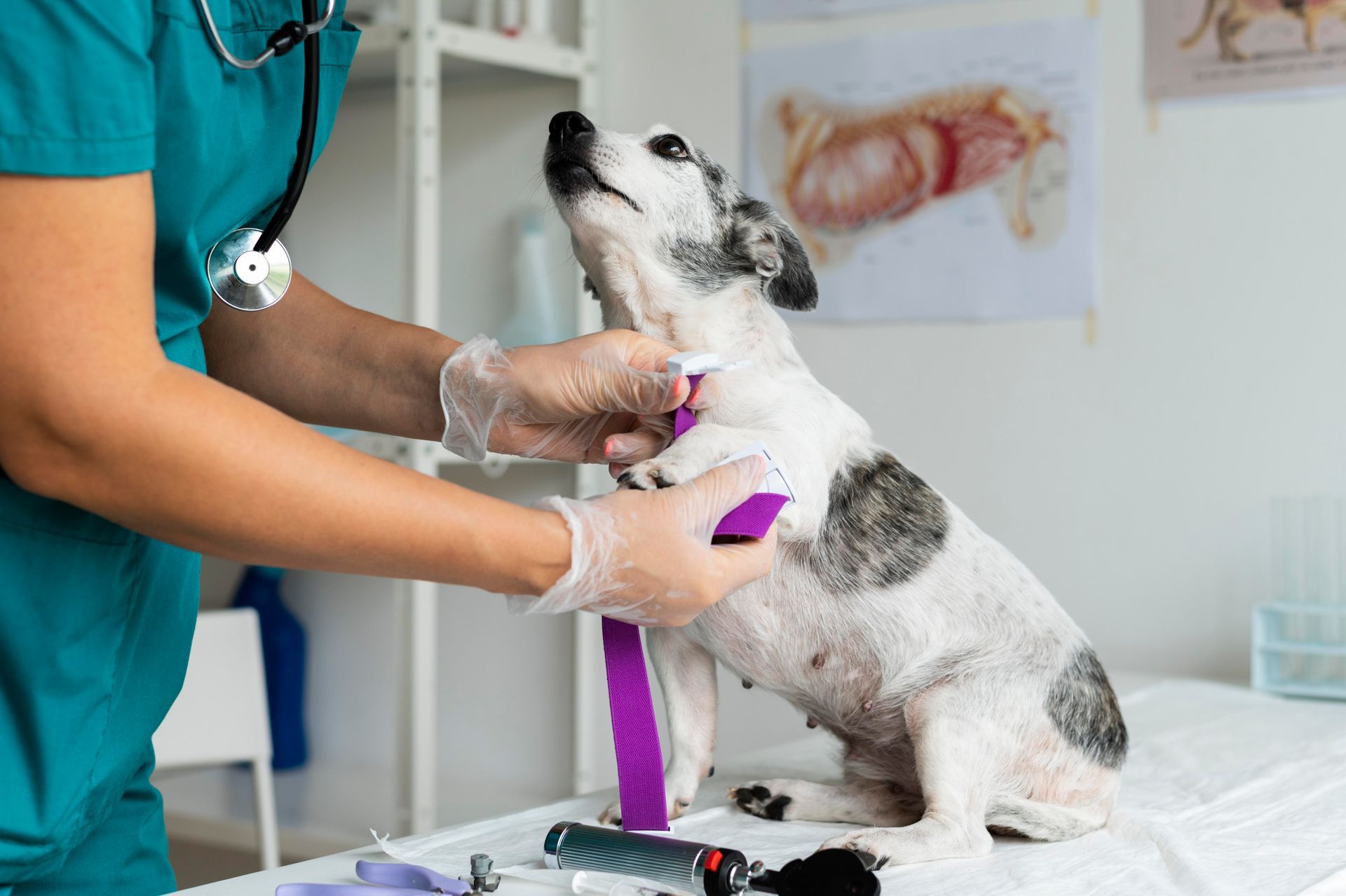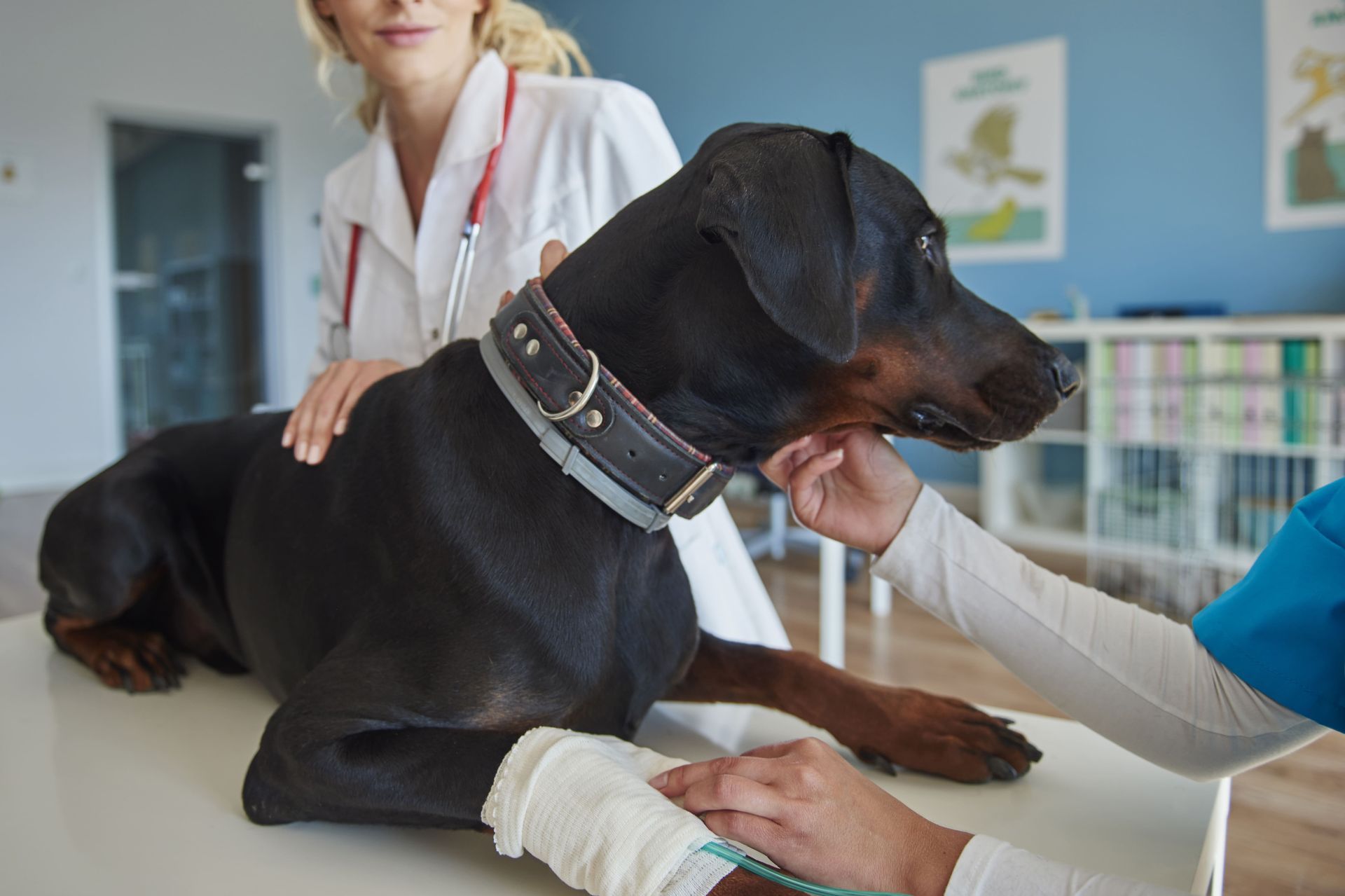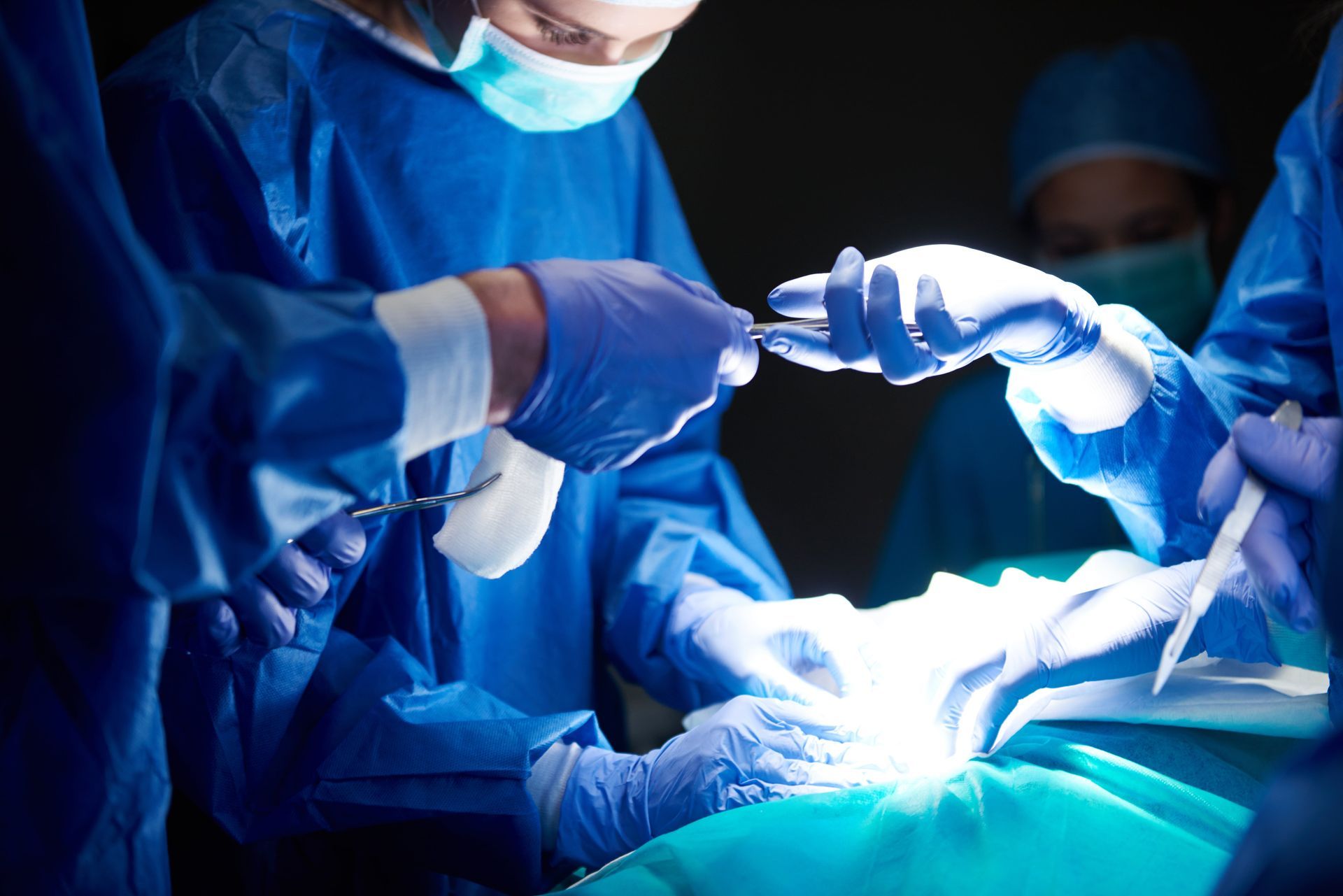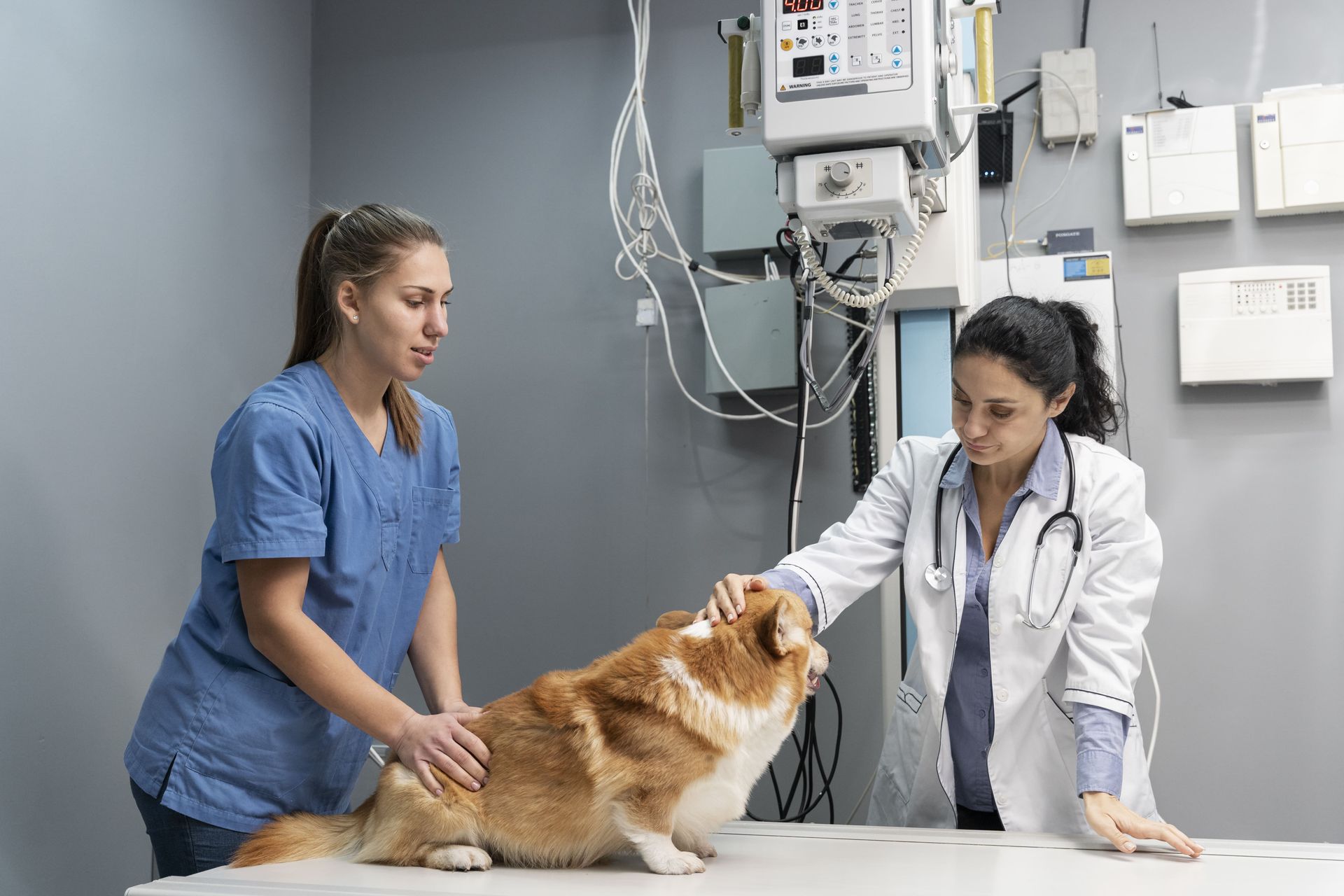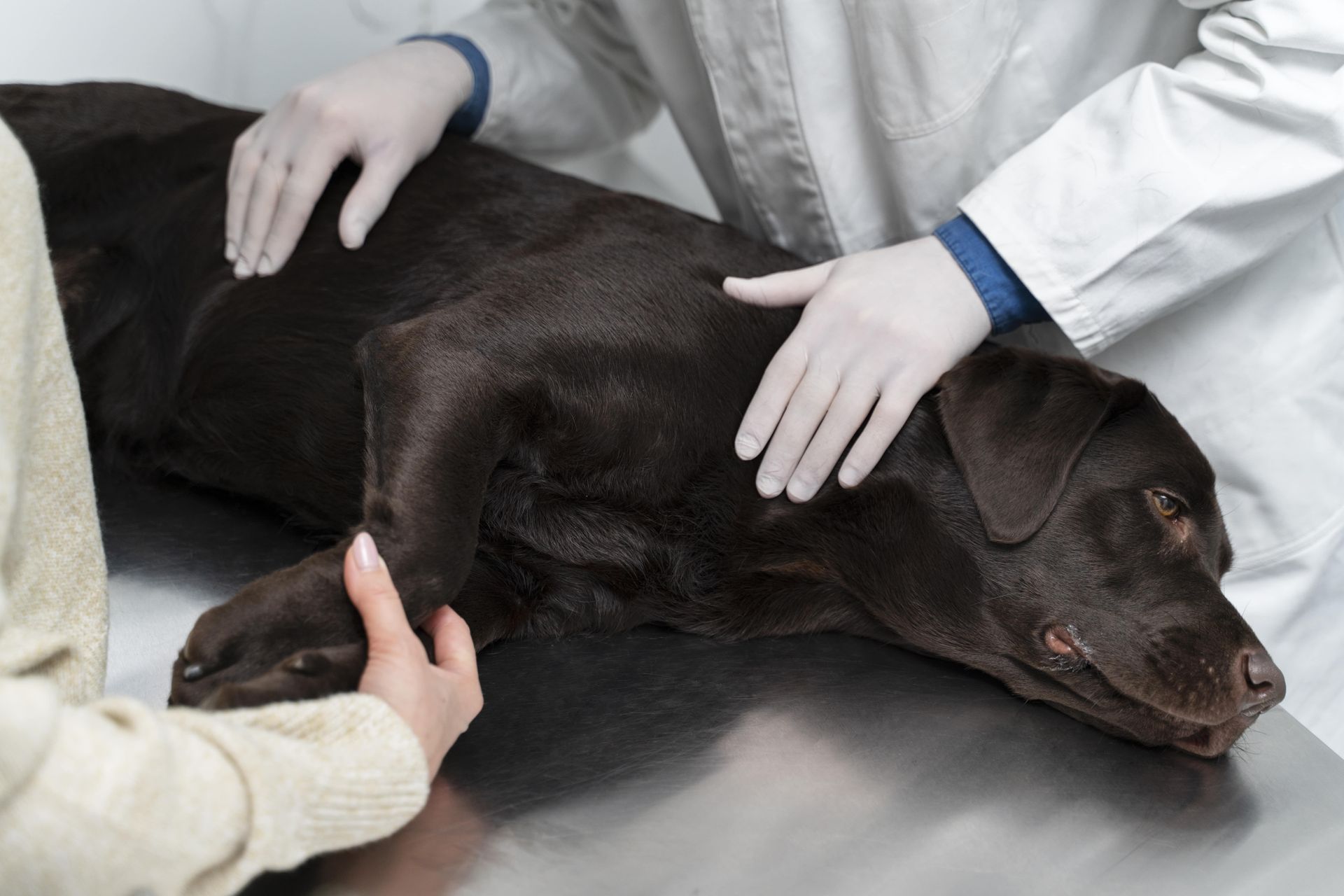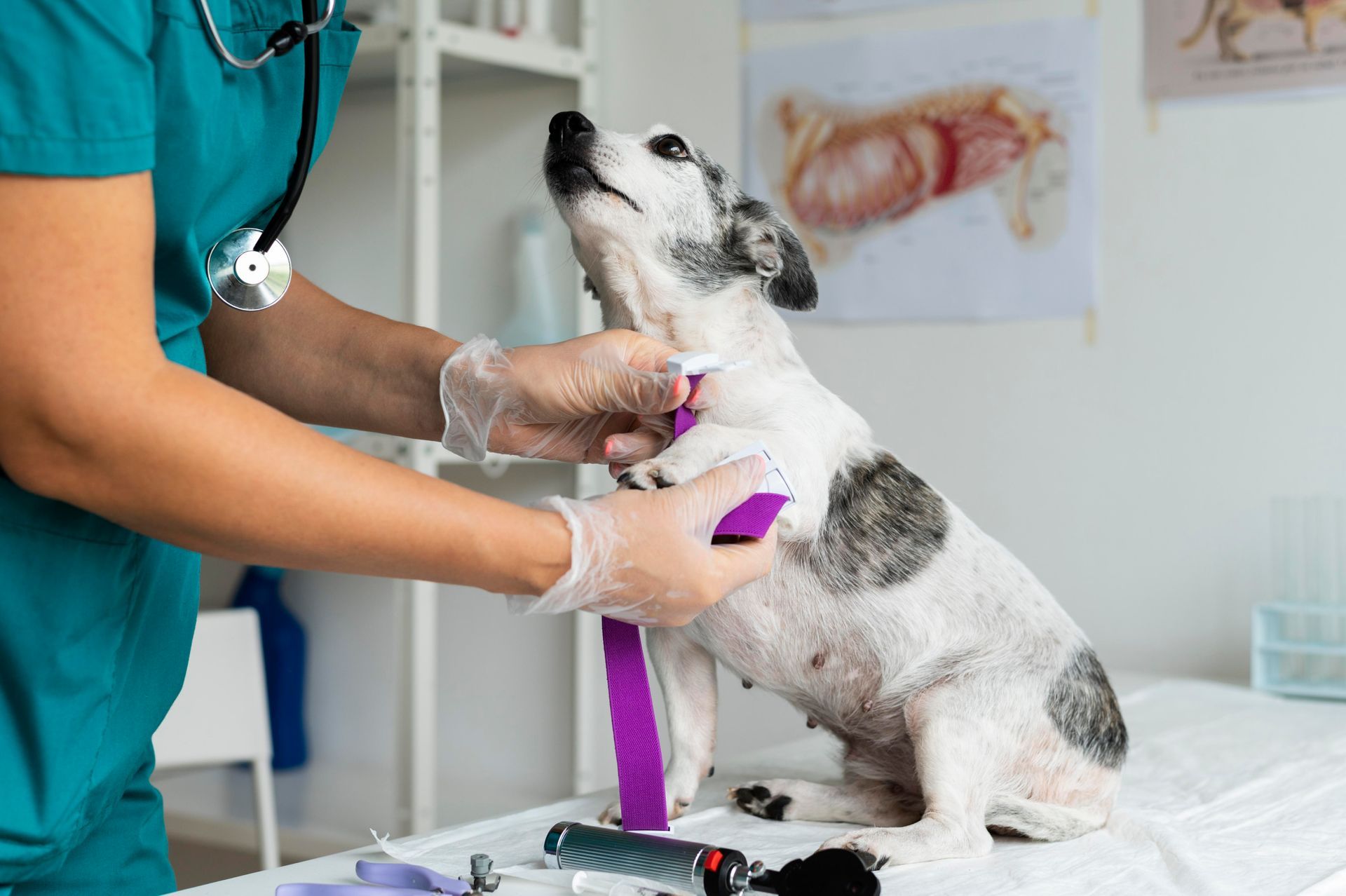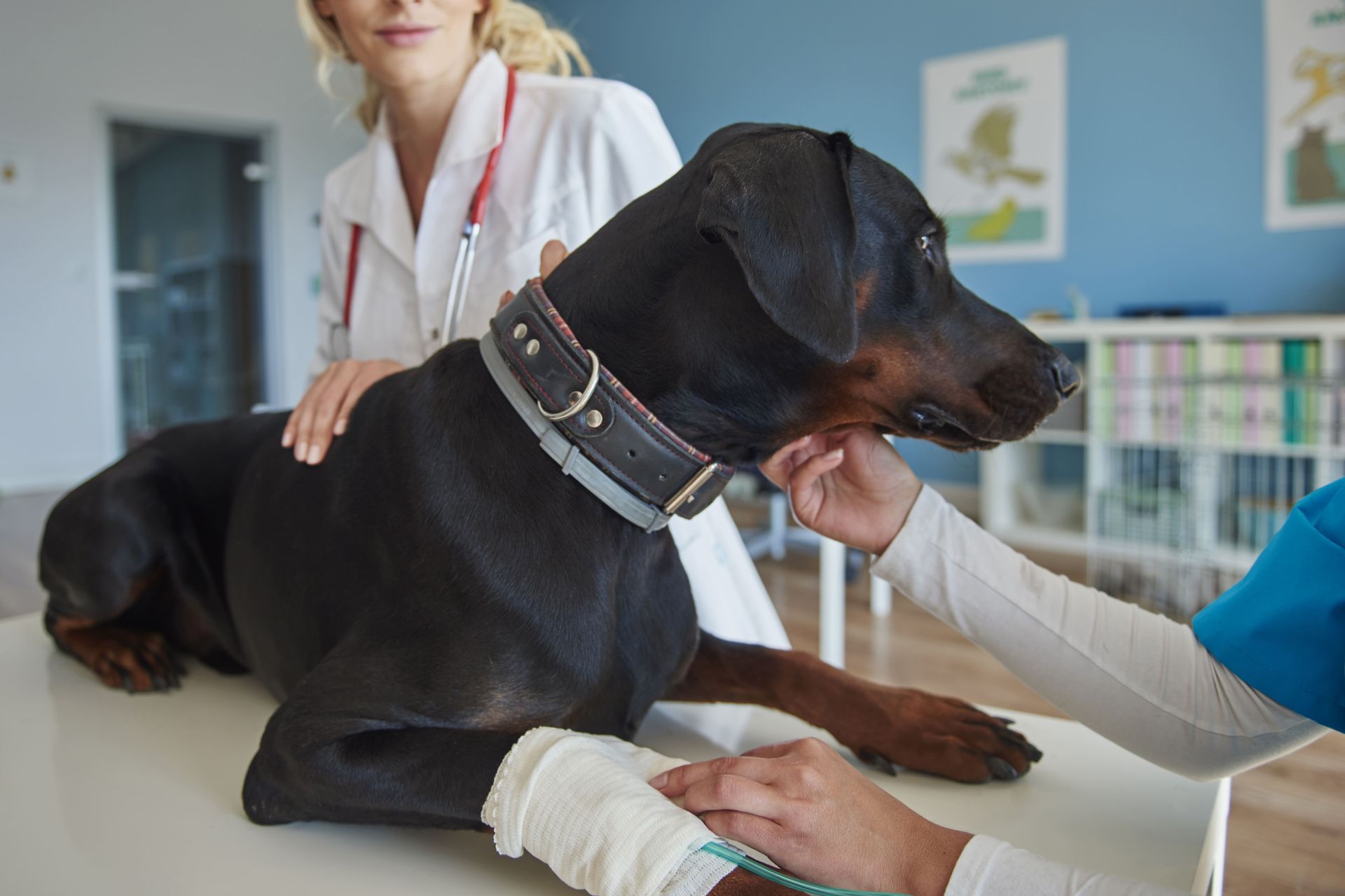Dog ACL Surgery Explained: Helping Your Pet Live Pain-Free
Understanding ACL Injuries in Dogs
When our furry friends experience pain or injury, it can be both heartbreaking and confusing for pet owners. One of the common conditions dogs face is an ACL injury, which often requires surgery for effective recovery. In this blog, we'll guide you through the essentials of dog ACL surgery to help your beloved pet live a pain-free life.
ACL injuries in dogs are similar to those humans experience. The anterior cruciate ligament (ACL) in the knee can tear due to sudden movements or gradual wear and tear. Recognizing signs of an ACL injury, like limping or avoiding weight on a leg, is the first step in getting your dog the help they need. This crucial ligament, often compared to the human ACL, provides the necessary support for joint stability during movement. Dogs that are young, active, or belong to larger breeds are at a higher risk. Early intervention is vital to prevent further damage and complications such as arthritis, which typically develops if the condition is left untreated over time.
Detecting an ACL injury early can significantly improve your dog's quality of life. Beyond limping, look for other symptoms such as swelling around the knee, clicking sounds during movement, and decreased willingness to run or jump. These signs indicate that your dog's knee is unstable, possibly leading to severe discomfort and reduced activity levels. It's essential to manage your dog's weight and activity, as obesity and high-intensity activities can increase the risk of injuries. According to PetMD, heavy breeds like Labradors or Rottweilers are more predisposed to these injuries. Keeping this in mind can guide preventive measures and ensure long-term joint health in your companions.
When Surgery Becomes Necessary
While minor ACL injuries may heal with rest and medication, many cases require surgical intervention to fully restore mobility. We'll explore the different types of ACL surgeries available and discuss how to work with your vet to determine the best option for your pet. Two common surgical procedures are Tibial Plateau Leveling Osteotomy (TPLO) and Tibial Tuberosity Advancement (TTA). TPLO involves reshaping the tibial plateau to stabilize the joint without needing an ACL, while TTA adjusts the tibial tuberosity to achieve the same effect. Both surgeries aim to reduce pain and prevent further deterioration. Generally, the choice of surgery depends on factors like the dog's size, weight, and activity level as recommended by PetMD. Understanding the surgical options can alleviate some anxiety. The extracapsular repair technique can be particularly suitable for smaller or less active dogs. This method uses a robust suture to create an artificial ligament outside the knee, restoring stability with minimal invasiveness. Despite the complexity of such surgeries, they generally boast a high success rate, often exceeding 85% when conducted by skilled surgeons. However, each operation carries risks, ranging from anesthesia complications to potential infections. Careful selection and consultation with your veterinarian are crucial in ensuring a safe and effective recovery for your furry friend.
HOW WE CAN HELP
At Lincoln Avenue Cat & Dog Hospital, we understand the importance of helping pets recover from injuries and conditions that affect their mobility. That’s why we offer Advanced ACL (anterior cruciate ligament) services that utilize state-of-the-art machines and technology to provide the most accurate diagnosis and effective treatment possible.
ACL surgeries are crucial for both cats and dogs suffering from injuries, as they can cause pain, instability, and mobility issues. Choosing the right veterinarian is essential to ensure your pet receives the best care and the most effective treatment. At our hospital, Dr. El'Akbawy, a renowned veterinary surgeon, brings decades of experience and advanced training in orthopedic surgeries. He is certified by a leading provider of orthopedic implants, instruments, and services, which ensures that your pet has access to the latest technology and techniques for ACL repairs. Dr. El'Akbawy’s expertise, combined with his commitment to exceptional patient care, guarantees that your pet will receive the highest level of surgical treatment and the best chance for a full recovery.
Post-Surgery Care and Rehabilitation
Recovery after ACL surgery requires diligent care. From managing pain to facilitating physical therapy, learn how you can support your dog's healing process and help them regain their strength and mobility. Initially, limit your dog's movement by confining them to a safe, comfortable space in your home away from slippery floors and stairs. Implement methods like short, controlled walks with a leash, ensuring they avoid jumping or playing too vigorously. Medication adherence is crucial; follow veterinary instructions accurately to manage pain effectively. Regularly inspect the incision site for signs of infection, ensuring it remains clean and dry. Use appropriate tools such as e-collars to prevent your dog from licking the area, thus minimizing the risk of complications.
Physical rehabilitation can be a powerful tool in your dog's recovery. Controlled exercises, gradually increasing in difficulty, can strengthen muscles and promote joint health. Consult your veterinarian for a tailored rehab plan that may include hydrotherapy or swim sessions. Engaging methods like interactive toys or gentle games can help in nurturing your dog's mental well-being while maintaining physical inactivity. Balanced nutrition and hydration further support healing, nourishing the body with essential nutrients. Maintaining a structured routine is pivotal in preventing setbacks and can accelerate recovery significantly, allowing your dog to regain their zest for life without pain.
Tips for Preventing Future Injuries
Prevention is key to long-term health. By implementing routine exercises and monitoring your dog's weight, you can help reduce the risk of future ACL injuries and ensure your dog's ongoing wellbeing. Exercise should be low-impact, focusing on strength and endurance-building activities. Swimming and walking are excellent alternatives to more intense activities like running or jumping, which may strain their joints. Weight management is equally vital; an overweight dog places more stress on their knees, increasing the likelihood of injury recurrence.
Furthermore, regular check-ups with your vet can help monitor your dog's joint health and provide a platform for addressing any emerging issues before they exacerbate. Supplements like glucosamine and omega-3 fatty acids may also support joint health by reducing inflammation and promoting cartilage repair. Adapting your dog's environment, such as providing ramps to avoid stairs and maintaining a slip-free flooring surface, creates a safer space. Such proactive measures can enhance your dog's quality of life, enabling them to enjoy a buoyant, joyful existence without the constraints of pain or injury.
Supporting Your Dog Through ACL Recovery
Caring for a dog with an ACL injury can be a challenging journey, but with the right information and support, you can help your pet recover successfully and continue enjoying a happy, active life. Remember, your veterinarian is your best resource for specific advice tailored to your dog's needs. For more guidance, visit the Lincoln Avenue Cat & Dog Hospital homepage and consult one of our experienced vets.
